First-of-its kind symposium on Quantum Technologies held at IIITH during 11-13 April brought great minds from the government, industry, and academia to brainstorm about the future.
When the Indian government decided to step up its research efforts in the field of quantum computing to keep pace with the rest of the world, it did so by launching the Quantum Enabled Science and Technology (QuEST) programme set up by the Department of Science and Technology (DST). Recently under the QuEST programme, an inaugural 3-day National Symposium on Quantum Enabled Science and Technology was formally launched at the International Institute of Information Technology Hyderabad (IIITH). The event was hosted at the institute’s first-of-its-kind dedicated and largest academic Centre for Quantum Science and Technology (CQST). There was a national organising committee for the symposium led by Prof. Arun K Pati from HRI, Prayagraj, and Prof. Apoorva Patel from IISc, Bangalore.
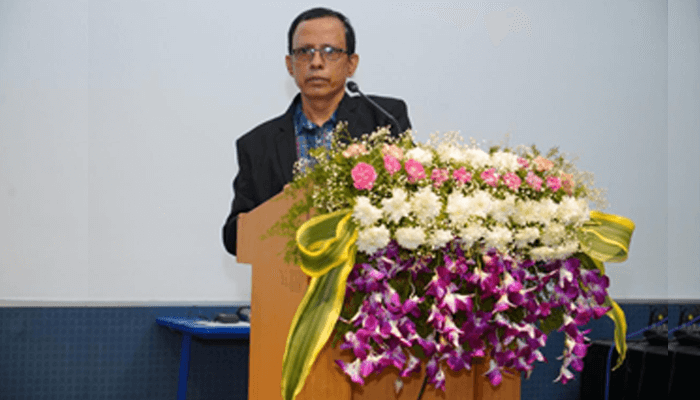
Need for New Tech Recognised
Researchers from across the country and abroad participated in the event to present and deliberate on the latest developments in quantum computing, quantum information science and quantum technology in general. Day 1 saw welcome and inaugural speeches by Prof. Pati, the Conference Chair, Prof. P J Narayanan, the Director of IIITH and the DST Secretary, Dr. Srivari Chandrasekhar respectively setting the tone for the symposium. Prof. Pati said, “Over the past 3 decades, the field of Quantum Computing and Quantum Information has evolved from theoretical possibilities to real practical applications. Keeping that in view, Department of Science and Technology (DST) initiated the Quantum Enabled Science and Technology (QuEST) program. QUEST is poised toward making India Quantum ready and moving forward for the larger National Quantum Mission.”
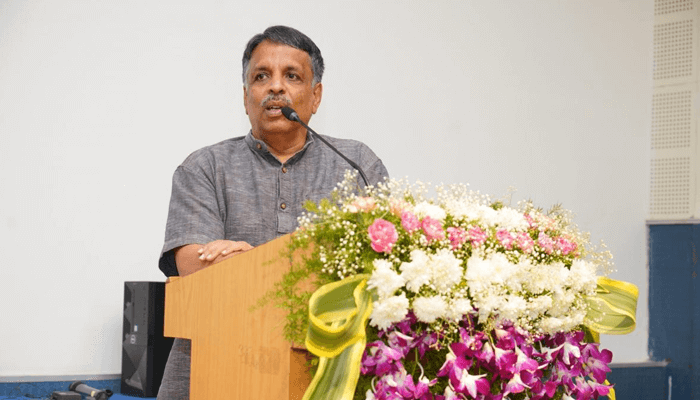
In his opening speech, Prof P J Narayanan remarked about how quantum computing, communication, and other quantum technologies are truly technologies with high future potential in which we must invest time and money today. “IIIT Hyderabad has built a strong group in its CQST and aspires to play a major role in the country combining expertise in Quantum Science & Technology with the Institute’s expertise in broad computing areas,” he said. Stressing on the need for research institutes to go beyond mere research and instead focus on real world solutions, Dr. Srivari Chandrasekhar in his inaugural address commended IIITH’s efforts in this direction especially with the setting up of CQST. He also reaffirmed the Indian government’s commitment to investing in new technologies to realise the true potential of the nation.
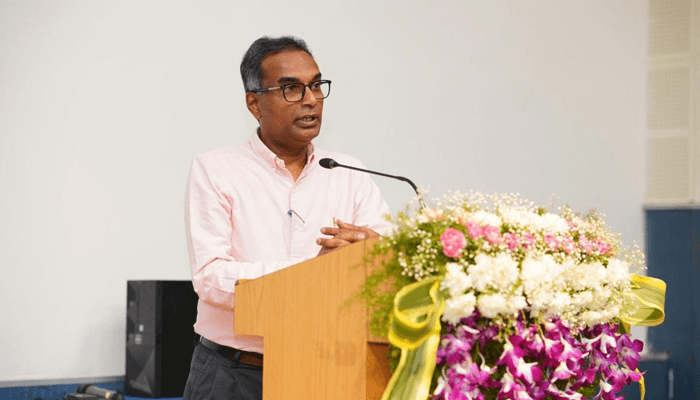
National and International Speakers
The first day progressed with invited talks by eminent national researchers on a wide array of topics such as quantum information processing, quantum communications, quantum key distribution, quantum homogenization, noise-adapted QEC, quantum sensing, quantum period finding as well as the triality of coherence, path-predictability and concurrence. It also featured invited review talks on Photonics by Arvind from IISER, Mumbai and one on Quantum Networks and their Security by Stefano Pirandola from the University of York, UK.
The second day’s eminent talks were by national speakers such as Prof R. Vijayraghavan from TIFR, Mumbai who gave an overview of superconducting qubit technology in India. Prof. Umakant Rapol from IISER, Pune, gave a review talk on Ion-trap and Dr. Kasturi Saha from IIT Bombay delivered a perspective on the development of quantum technologies with diamond and magnetic resonance in India. International speaker Rainer Blatt, Universitaet Innsbruck, Austria, presented the Quantum way of doing computations, simulations and measurements while David DiVincenzo, Juelich, Germany spoke about the developments in superconducting qubits. In addition to these talks, there were other invited talks by national speakers such as Dr. Kavita Dorai, Dr. Ambarish Ghosh and Dr. Usha Devi.
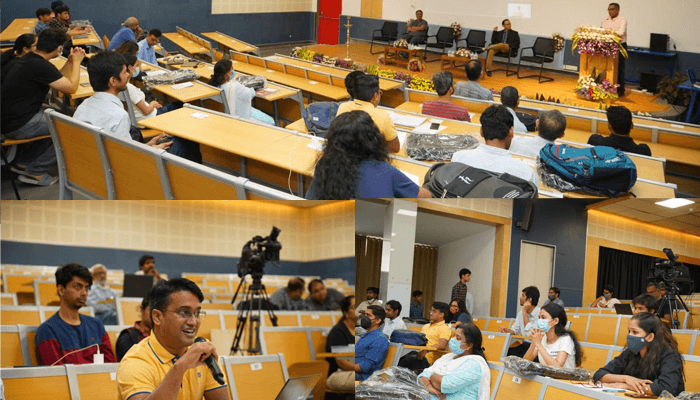
Industry-Academia Discussion
The final day kicked off with international speaker Prof Simon Devitt giving a review talk on error correction. There was an industry-academia panel discussion that saw participation of industry leaders from Microsoft. Amazon, and TCS with equal representation of academics from institutes such as Raman Research Institute, TCG-CREST, SN Bose National Centre for Basic Sciences, and Quantum Ecosystems and Technology Council of India (QETCI). There were national-level invited talks by Dr Arindam Ghosh, Dr Rejish Nath, Dr Arul L, and Dr Vibhor Singh. The international speaker was Prof Dieter Suter, Dortmund, Germany who delivered a talk about hybrid qubit registers. In a grand finale, the event concluded with parallel sessions of contributed talks by diverse participants spread over a marathon 3-hour period.
Dr. Indranil Chakrabarty who is from CQST and a part of the conference organizing committee said, “Organizing this kind of initiative and meetings in future will be of great importance from the CQST perspective in building up the ecosystem as CQST is very much dedicated and focused in achieving excellence in the area of Quantum Science and Technology ”
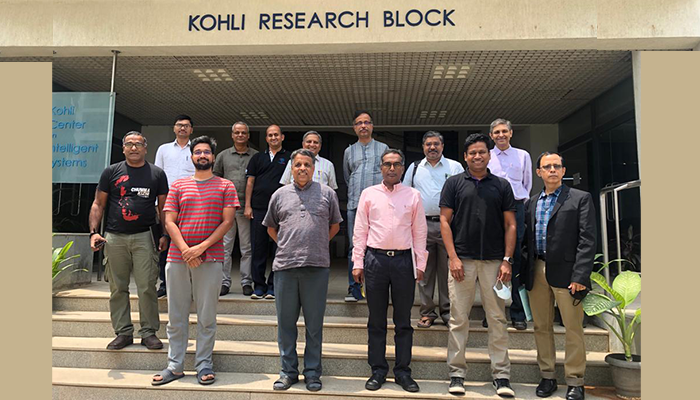

Sarita Chebbi is a compulsive early riser. Devourer of all news. Kettlebell enthusiast. Nit-picker of the written word especially when it’s not her own.

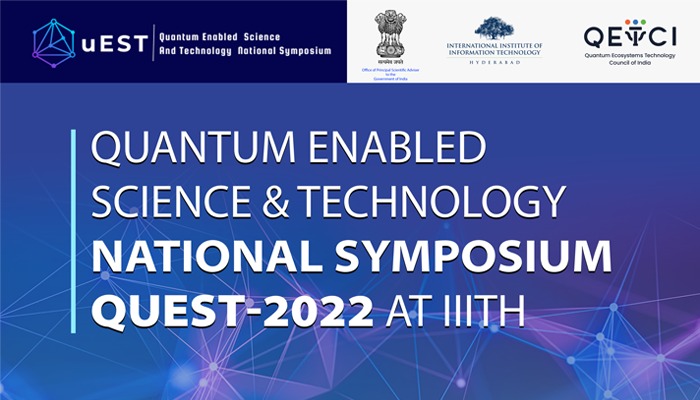
Next post